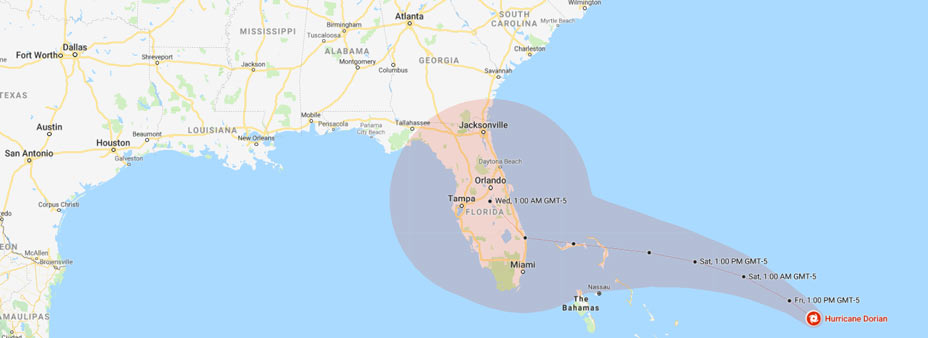Dorian Approaching, Recovery Begins Now

Vice President, IEM
As Hurricane Dorian approaches the State of Florida as a potential devastating Category 4 hurricane, individuals, communities, and the State are already in preparation and response postures. From lines of cars packed with essentials heading north, to local emergency operation centers fully staffed, the State of Florida and its citizens are not amateurs when it comes to dealing with hurricanes. When I served as the Director of the Florida Division of Emergency Management (FDEM) from 2011 to 2017, it never ceased to amaze me that at FDEM and in Florida local governments across the state, Florida has some of the best emergency managers in the business. Their overarching goal for Hurricane Dorian will be the protection of life and property. The next goal, recovery, will come days and weeks after this hurricane where counties and the FDEM will transition to recovery mode – but thinking about it now can alleviate future financial pain.
The Federal Emergency Management Agency (FEMA) will reimburse these Florida counties through FDEM for costs associated with dealing with the hurricane debris left behind (Category A) and Emergency Protective Measures (Category B). In the latter case, I saw instances where during the response phase of an event, local governments did not keep adequate records such as government personnel time records to account for example disaster event activities of fire and police. This of course had downstream impacts of not receiving reimbursements from FEMA or the cost share from FDEM.
While there is more to do when it comes to creating meaningful and realistic recovery plans, progress in this area has occurred across the U.S. including Florida. The proverbial adage that a plan does not survive first contact with a catastrophic event does ring true but I know from my experience at FDEM, Florida counties have exercised not only response plans but many have also exercised their recovery plans to the point of muscle memory. Accordingly, it is important for those counties that have a recovery plan to trust it, review it, and remember that it was likely informed by many lessons learned.
For families, communities, and the State, Hurricane Dorian can turn out to be a financial strain on already burdened budgets. For local governments, by thinking about recovery now, these entities in Florida such as school districts, cities and counties, all eligible for FEMA and FDEM recovery support, can quicken their own financial recovery from urgent post-hurricane costs. Keeping good records, ensuring enough grant administrative staff are on duty so they can begin building packages for FEMA and FDEM reimbursement immediately, and being aware of all the Category B costs that can be reimbursed will help them ease the immediate financial pain.
Author: Bryan Koon, Vice President for International Homeland Security and Emergency Management





